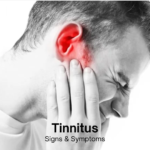Understanding Tingling Sensations: Causes, Diagnosis, and Treatment
Tingling sensations, often described as pins and needles or paresthesia, can be an unsettling experience. These sensations can occur anywhere in the body but are most commonly felt in the extremities, such as hands, feet, arms, and legs. While tingling is often temporary and harmless, persistent or recurrent episodes may indicate underlying medical conditions that require attention. This article delves into the causes, diagnosis, and treatment of tingling sensations to help you better understand this common phenomenon.
Causes of Tingling Sensations
- Temporary Causes
- Pressure on Nerves: Sitting or standing in one position for too long can compress nerves and restrict blood flow, leading to temporary tingling. This usually resolves once the pressure is relieved.
- Hyperventilation: Rapid breathing can lead to tingling in the hands and feet due to changes in blood carbon dioxide levels.
- Cold Temperatures: Exposure to cold can cause blood vessels to constrict, reducing blood flow and causing tingling in the extremities.
- Nutritional Deficiencies
- Vitamin B12 Deficiency: Essential for nerve health, a deficiency in vitamin B12 can lead to tingling sensations. It is commonly seen in people with poor dietary intake or absorption issues, such as those with pernicious anemia or gastrointestinal disorders.
- Magnesium Deficiency: Low levels of magnesium can lead to neuromuscular excitability, causing tingling and muscle cramps.
- Medical Conditions
- Diabetes: Diabetic neuropathy is a common complication of diabetes, resulting from high blood sugar levels damaging the nerves. Tingling, numbness, and pain in the feet and hands are typical symptoms.
- Carpal Tunnel Syndrome: Compression of the median nerve in the wrist can cause tingling, numbness, and weakness in the hand and fingers.
- Multiple Sclerosis (MS): An autoimmune disease affecting the central nervous system, MS can cause a range of symptoms, including tingling and numbness.
- Peripheral Neuropathy: Damage to the peripheral nerves, often caused by conditions like diabetes, infections, or autoimmune diseases, can result in tingling sensations.
- Infections
- Shingles: Caused by the reactivation of the chickenpox virus, shingles can lead to tingling, pain, and a rash in the affected area.
- Lyme Disease: Transmitted by ticks, Lyme disease can cause neurological symptoms, including tingling and numbness.
- Other Causes
- Medications: Certain medications, particularly those used in chemotherapy, can cause neuropathy and tingling sensations.
- Alcohol Abuse: Chronic alcohol consumption can lead to nerve damage and tingling sensations, particularly in the hands and feet.
- Anxiety: Psychological conditions like anxiety can manifest physically, with tingling sensations being a common symptom during panic attacks.
Diagnosis of Tingling Sensations
Diagnosing the cause of tingling sensations requires a comprehensive approach, often starting with a detailed medical history and physical examination. Here are some common diagnostic steps:
- Medical History and Physical Examination: Your healthcare provider will ask about the onset, duration, and location of the tingling, along with any associated symptoms and potential risk factors, such as diabetes or recent infections.
- Blood Tests: Blood tests can identify nutritional deficiencies, diabetes, thyroid disorders, and other conditions that may cause tingling.
- Nerve Conduction Studies and Electromyography (EMG): These tests measure the electrical activity in your muscles and nerves to identify nerve damage or dysfunction.
- Imaging Studies: MRI or CT scans can detect structural abnormalities, such as herniated discs or tumors, that may be compressing nerves.
- Lumbar Puncture: In cases where multiple sclerosis or other central nervous system conditions are suspected, a lumbar puncture may be performed to analyze cerebrospinal fluid.
- Skin Biopsy: A skin biopsy can be used to diagnose small fiber neuropathy, a condition affecting the small nerve fibers in the skin.
Treatment of Tingling Sensations
Treatment for tingling sensations depends on the underlying cause. Here are some common treatment approaches:
- Addressing Nutritional Deficiencies: Supplementing with vitamin B12, magnesium, or other deficient nutrients can alleviate tingling caused by nutritional deficiencies.
- Managing Chronic Conditions: Effective management of chronic conditions like diabetes, hypothyroidism, or autoimmune diseases can prevent or reduce tingling sensations.
- Diabetes Management: Controlling blood sugar levels through diet, exercise, and medication can prevent or alleviate diabetic neuropathy.
- Autoimmune Disease Management: Medications to suppress the immune system, such as corticosteroids or immunosuppressants, can reduce nerve damage and tingling.
- Medications: Depending on the cause, various medications may be prescribed to alleviate tingling sensations.
- Pain Relievers: Over-the-counter pain relievers or prescription medications can help manage pain associated with nerve damage.
- Antidepressants and Anticonvulsants: Certain antidepressants and anticonvulsants are effective in treating neuropathic pain and tingling.
- Physical Therapy: Physical therapy can help strengthen muscles, improve mobility, and reduce nerve compression, particularly in conditions like carpal tunnel syndrome.
- Surgery: In cases where nerve compression is severe, such as with carpal tunnel syndrome or herniated discs, surgical intervention may be necessary to relieve pressure on the nerves.
- Lifestyle Modifications: Adopting a healthy lifestyle can prevent or reduce tingling sensations.
- Balanced Diet: Eating a diet rich in essential nutrients can prevent deficiencies that cause tingling.
- Regular Exercise: Exercise improves blood flow, reduces inflammation, and promotes overall nerve health.
- Limiting Alcohol: Reducing or eliminating alcohol consumption can prevent alcohol-induced neuropathy.
When to Seek Medical Attention
While occasional tingling is often harmless, persistent or severe tingling warrants medical attention. Consult a healthcare provider if you experience:
- Tingling that persists for an extended period or recurs frequently
- Tingling accompanied by pain, weakness, or muscle cramps
- Tingling after an injury or illness
- Loss of sensation or difficulty moving the affected area
Conclusion
Tingling sensations can range from a minor annoyance to a symptom of a serious underlying condition. Understanding the potential causes, seeking appropriate diagnosis, and following recommended treatments can help manage and alleviate these sensations. If you experience persistent or severe tingling, consult a healthcare provider to identify the cause and receive appropriate care. By addressing the underlying issues, you can improve your quality of life and prevent further complications.





